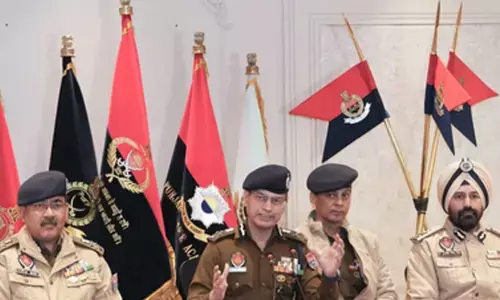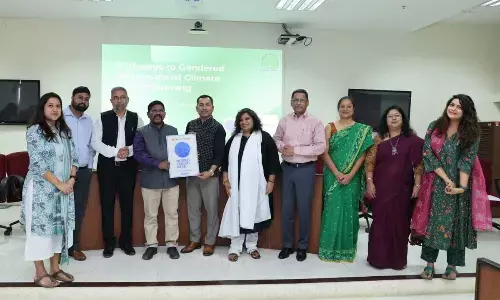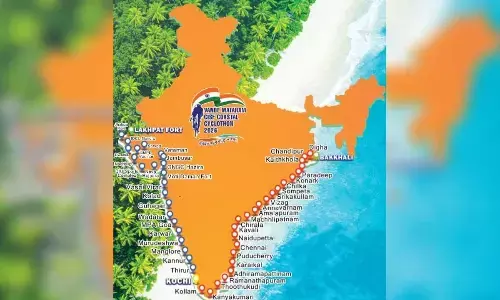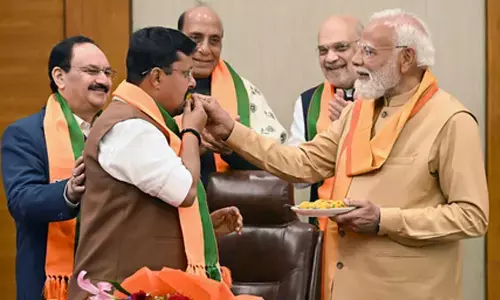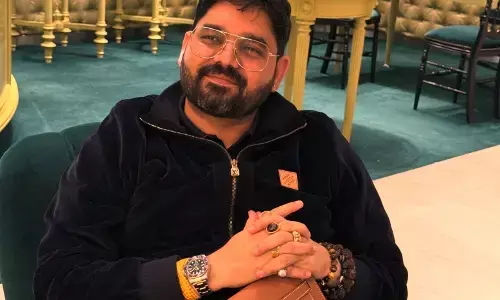Interviews and anxiety pangs

Representational image
Meanwhile, news arrived of my selection for appearance at the IAS interviews at UPSC following my successful clearance of the preliminary examinations held earlier.
Meanwhile, news arrived of my selection for appearance at the IAS interviews at UPSC following my successful clearance of the preliminary examinations held earlier.
I have mentioned, earlier in this column, that the primary reason for my joining the civil services was my father's keenness upon my taking up that career. After I had appeared for the interview at the UPSC, he flew to Delhi the next day, anxious to ascertain how I had fared.
A full debriefing followed, at the end of which he exclaimed "How was I to know that there was so much you did not know!" A realisation more or less on the lines on which my brother had earlier assessed me, when he stated that all my knowledge could have been written in bold letters behind a postage stamp! Or, for that matter, my ignorance in small letters, all the way from Hyderabad to New Delhi!
Another trial, this time successful, I made those days, was to have a crack at the State Bank of India (SBI) Probationary Officers competitive examinations. The examinations, the subsequent interview, the final selection, the training in the Induction School at Bombay, all went off fairly uneventfully and, in fact, pleasantly. I was first posted to the Machilipatnam branch of the SBI for training. After a while I joined a group being trained in the Bank's Induction School.
An interesting event, during that period, was my being called for an interview for selection as an officer in the Chartered Bank, the interview taking place at Bombay, where I was already training with SBI. The person who interviewed me, told me quite bluntly, that I had to walk into the opportunity with my eyes wide open as they were looking for officers mostly for working in the backward areas of the world such as sub-Saharan Africa, South Asia and the Latin American region. I had, therefore not too much of regret, when I received news that I was not selected.
I returned to the Machilipatnam branch of the Bank after my training in Bombay. It was during those days that I got news of my selection to the IAS. Some more opportunities arose for me after joining the service to be a part of the interviewing exercise, sitting on the other side of the table.
One was the pleasing experience of selecting a receptionist for the State Finance Corporation of Andhra Pradesh, spending the whole day assessing the suitability of beautiful young girls! Another was to come my way many years later when, after retirement from the service, I acted, for a few days, as a Member of the Selection Board for the Civil Services at the UPSC. Not being at the receiving end, I must confess, was not unpleasant at all! I must hasten to add, however, that I was helpful and gentle in my approach. Also positive and encouraging.
And then, quite recently, I have sat on boards 'mock interviewing' candidates selected for civil services interviews by way of rehearsals. What began as a face-to-face experience had to be converted into an 'online' exercise following the lock down during the Covid-19 pandemic.
A rather painful and soul killing exercise was the task entrusted by the state government, to officers at various levels, during the 1970s, 'to weed out deadwood'. One was required to look at the service records of people over 50, or with 25 years of experience or more. That was in the company of two colleagues, P.C. Parekh who recently authored the controversial book 'Crusader or Conspirator …..' on the coal scandal at the government of India, and A N Tiwari who retired as Chief Information Commissioner of India. We tried, and I believe succeeded, in minimising the damage.
Finally, comes to mind the rather unpleasant reaction I felt upon being told, almost a few months after my superannuation as Chief Secretary, that I had to write the final assessments of literally hundreds of IAS and IPS officers! Knowing the importance of the Annual Confidential Reports, however, I set myself to the task very sincerely, and seriously, and spent several weeks carefully recording my considered views on every single one of them.
When in doubt, I was generous, while I sang praises when certain. It was on the rarest of rare occasions that I had to record an adverse or negative comment, mostly in the face of a disciplinary action that was pending or an earlier verdict, of an enquiry officer, against the character and conduct of the person concerned.
Defending my PhD thesis in the Department of business management at Osmania University was another similar experience. The most interesting part was that, just as I was wallowing in the warmth of the feeling that follows the writing of a good dissertation, news came, though months later, that my thesis went missing.
That it was recovered later is a fortuitous turn of events I attribute to my prayers alone, as the university is not known for such bursts of efficiency. Several years after that I was finally called for an interview in which I had to stand in defence of my contribution. And at long last I was able to add the proud prefix Dr to my name! My daughter Aparna and son-in-law Rajeev also attended the inquisition (for that was how it felt!) which, although I do say so myself, went off rather well.
"Judge not", says Jesus Christ in the Holy Bible, "lest ye be judged". And to plagiarise Oscar Wilde (who said that morality is a standard by which we judge other people), judging whether a given person possesses a personality, which is good enough for a particular position, is a matter entirely subjective in nature. And happily apply to others standards one is not quite willing to apply to oneself.
I wish major institutions, including the UPSC, would introduce a system by which those that are selected are asked to give their opinion about the manner in which the selection process was conducted. That is a common practice, for instance, in academic institutions where students are asked to judge the value of the lessons taught them by teachers, and to add comments about how the quality, and content, of the instruction process can be improved. The valuable feedback received by way of responses to a suitably devised questionnaire for the purpose can vastly improve future effort.
(The writer is former Chief Secretary, Government of Andhra Pradesh)
(The opinions expressed in this column are that of the writer. The facts and opinions expressed here do not reflect the views of The Hans India)








